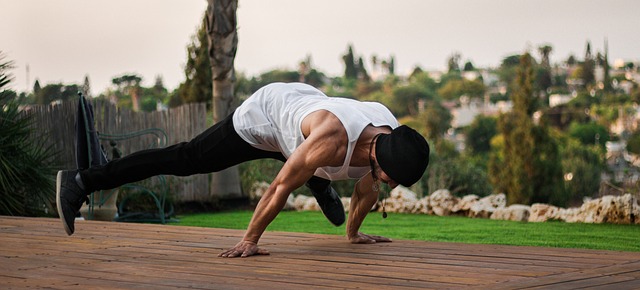Posts Tagged ‘posture’
With Spinal Health, Posture Leads the Way
Much is written and said about posture
But there is one maxim that we know to be true: poor posture leads to poor health. It doesn’t just make you look bad (at the very least, lacking in confidence), it also sets a tone for which the rest of your body and mind will follow.
Poor posture:
- Puts more pressure on your spine
- Limits spinal joint mobility
- Causes organ dysfunction
- Changes the shape of your spine
- Compresses nerves and causes dysfunction in the nervous system
- Reduces lung capacity
- Interferes with brain functioning
If we have not provided enough reasons thus far, rest assured that the list goes on. Understanding the role of posture in not just our spinal health, but our overall wellbeing, is a critical first step in changing the way you sit, stand, sleep and move around.
A Stronger Core for a Longer Life
Why bother strengthening the core muscles?
The reasons are bottomless, but let’s boil it down to the most important few:
- Injury prevention: core stability, influenced by the deeper-lying postural muscles, is the foundation upon which all other components of health should be built. A solid, stable core will keep your body and spine resilient to injury from all movements.
- Spinal longevity: your core muscles are the most important asset you have in preventing back pain and combating spinal degeneration.
- Protecting your nervous system: your spinal cord is your central command center, the highway upon which the nervous system communicates. A strong core mitigates the compression that puts your spine under pressure and disrupts the nervous system.
- Look better: an upright posture projects confidence and confidence is sexy.
Why is Postural Strength Important?
Postural strength makes for a more comfortable life
Whether you are endlessly active or frequently sedentary, postural muscles are a cornerstone of keeping you pain free; therefore, whether you are a gym rat or a more low key homebody, your workout routine should include a focus on maintaining and strengthening the postural muscles. But what are the muscles that matter for postural strength? There are two main groups:
- Postural muscles: these muscles are always active, even when you have been sitting without a shred of movement for hours. These muscles are located deep in the body, between the pelvis and abdomen, as well as all the muscles which attach to the spine. These muscles often become tight from overuse.
- Phasic muscles: responsible for strength and initiating movement, muscles like the abdominals and glutes often become weak from lack of use.
The essential imbalance between tight postural muscles and weak phasic muscles leaves your body at risk for pain and dysfunction.
Posture while…Sleeping?
What is your personal sleep posture? Spread eagle, stomach down? Fetal position? Do you move a lot when you sleep, or stay still as a rock? Few people can answer these questions with total clarity because by nature, sleep is an unconscious activity. But some sleep positions are superior to others, and we do have the power to influence how we fall asleep. We generally choose whatever feels most comfortable, which is fine for those of us who sleep on our sides or back, but sleeping on the stomach can be incredibly damaging to the spine. Here are some postural considerations while sleeping:
The primary goal for any sleepers should be to keep their spine as close to natural alignment as possible.
The stomach-down position should therefore be avoided, but if you must sleep this way, use a pillow underneath the stomach to avoid letting the curve of your back collapse into the bed. Furthermore, the position that the stomach sleeper’s head usually takes during sleep puts a lot of pressure on the muscles of the neck and the shoulders.
Sleeping on your back is one of the best positions, but it can put pressure on the lower back. You can defeat this condition by putting a pillow under the knees that gently lifts them and alleviates pressure from the lower spine. Make sure you are using a pillow that keeps your head straight in relation to the spine.
When sleeping on the side, bend your knees in a loose approximation of the fetal position to avoid pressure accumulating to the lower back. As with the sleeping on your back, pillow usage is crucial: you don’t want a pillow that encourages the neck to angle up or down to aggressively.
Changing the way you sleep is a challenging proposition: it requires peeling back years of repetitive behavior and a lot of patience, but the upside is tremendous. We would like to see people waking up refreshed and pain free. At Holmes Chiropractic, we have the knowledge to help you institute changes that will lead to a restful night’s sleep.
Call our office in Houston at (713) 862-2440
Driving Posture
Does your car seat offer you any support? If not, what steps are you taking to maintain a healthy resting position while commuting? These may sound like tough questions when you commute for only thirty minutes a day, but the minutes add up, especially for your spine. Car seats are rarely engineered to encourage a neutral resting position, so the onus is often upon us to ensure that our backs remain upright rather than slouched in our seats.
Here are some postural tips:
1. Avoid leaning to one side: this is more common than you might think. Drivers often find themselves leaning on the center console which introduces a slight but significant imbalance to the back. Over hours and hours, this imbalance can compound to cause pain.
2. Hips straight, face straight. Keep your chin level and your head balanced over your spine to prevent the weight of the head from causing excess pressure to the cervical vertebrae.
3. As time creeps on, don’t let your shoulders tense. This is something that happens no matter what the activity. Be cognizant of muscles in the neck and shoulders tightening, because this is symptomatic of the entire back. If you need to, pull over and stretch. It may sound silly, but it can save you from being stiff at the end of the drive.
4. Hands at 9 and 3
If you commute to make your living, driving posture should be high on your list of health priorities. At Holmes Chiropractic, we help people see the problem areas in their lifestyle and how it is contributing to their back pain. For an assessment that takes into account your particular back pain and how it relates to your lifestyle, call our office at (713) 862-2440.
Dr. Randall Holmes, D.C.
Posture Headache
If someone were to take a picture of you right now, as you sat at the computer, how would you look? Would you be upright in your chair, with a healthy lordotic curve, shoulders back and face straight forward. Or would you be slumped forward, neck cricked downward, with tight shoulders and a rounded back? For many people, it is option two, and it’s not doing their head any favors. For people who come home from a grueling day at the office with a pounding headache, posture could be your downfall.
Here’s how it works: after hours of mental exertion, any awareness of posture has gone out the window. We have succumbed to the malaise of work and our muscles are now suffering. The chin starts moving toward the screen, as though by magnetization, and the head follows, rounding the back and scrunching shoulders in the process. Now the weight of your head, no longer at the top of a straight spine, is magnified, creating an imbalance that requires shoulder and neck muscles to compensate. This is how these muscles feel tight or strained. Often times, muscle spasms will accompany this position, and the pain is referred to the head, leaving you with a headache.
Clearly, this is not something you want to do to yourself. There are many intangible factors which create headaches. It is in all of our best interest to exercise the powers in our control to limit headache symptoms. Posture is one of the most effective, least used ways to influence your health: unlock its power by calling our office in Houston today at (713) 862-2440.
Dr. Randall Holmes, D.C.
Sleeping with Good Form
If only sleeping was simple. In a globalized world where stress seems to grow by the day, sleep is becoming harder to come by: falling asleep and staying asleep are problems entirely of their own, but what is happening while you sleep? The position your body is in can determine whether you wake up feeling refreshed or refracted, rested and rewarded or wrinkled and restless. Today, a topic that is hard to control, but has large lasting ramifications on your body: sleep posture.
- Sleep posture is usually determined by what feels most comfortable: for back and side sleepers, this is OK, but for stomach sleepers this is unfortunate. Have you ever heard that sleeping on your stomach is bad for you? Unfortunately, it’s true. Besides making an impact on snoring and some sleep apnea cases, belly-down is no boon for healthy sleeping. As you sleep, the natural curve of the spine is flattening. If this is the only way you can fall asleep, put a pillow under your lower abdomen to fight the flattening effect.
- Back sleepers: This is the best position for your body to sleep as the back, neck and head remain in alignment. Sleep ergonomics come into play here however: sleeping with a pillow that cricks your neck up or down can leave you stiff and out of sorts in the morning and a bed that does not sag in the middle is important.
- Side sleepers: you are in the majority. This is the most comfortable position for people to fall asleep and wake up and it is not necessarily damaging. A downside of sleeping on the side is the amount of weight that is put on the shoulders and inferior arm. Believe it or not, the side you usually sleeps on has an impact on your health. For example, sleeping on the right side can contribute to heartburn while sleeping on the left side can put pressure on organs like the liver and lungs.
Sleeping is far from simple. But there are minor adjustments you can make to your sleep set up that will help you reap the most benefit out of your restive period. Call our office in Houston at 713-862-2440 to schedule an appointment.
Dr. Randall Holmes, D.C.






